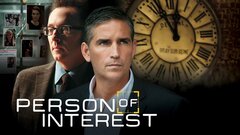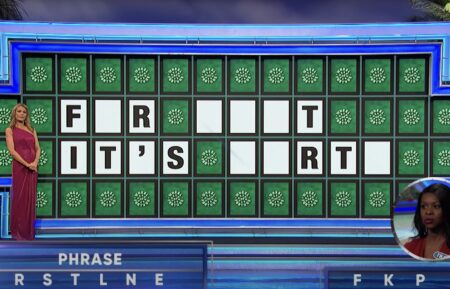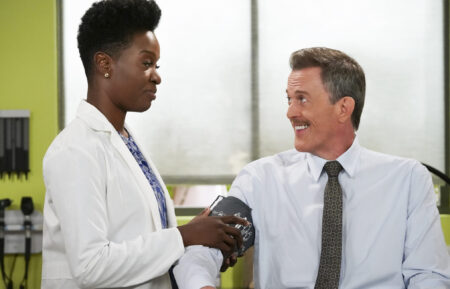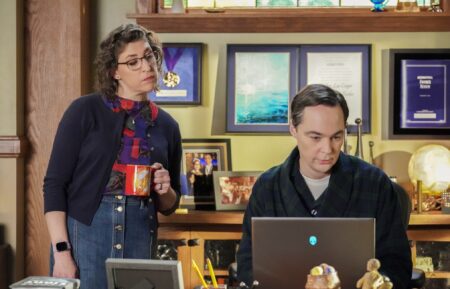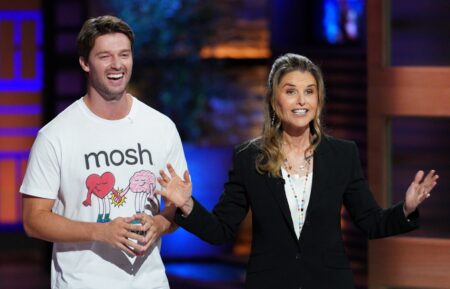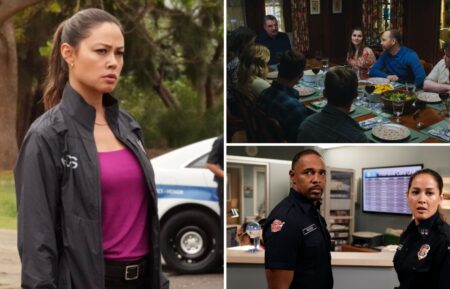The ‘Person of Interest’ Bosses on the Series Finale’s Farewells and New Beginnings
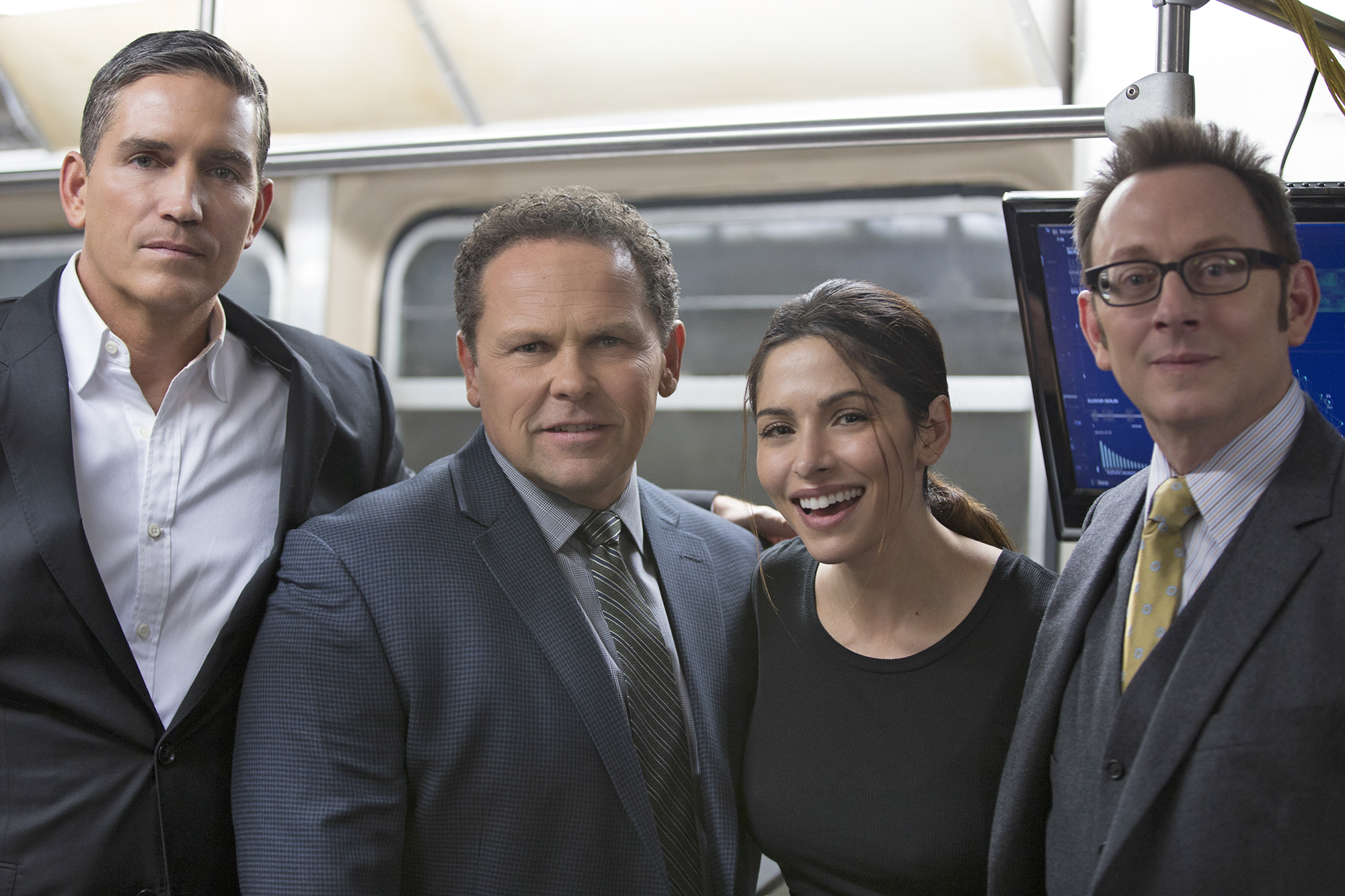
Warning! This post contains spoilers for the series finale of Person of Interest. Please do not read on if you haven’t watched the hour.
Person of Interest ended its run with several attempted sacrifices…but only one stuck.
Though Finch (Michael Emerson) unleashed the Ice-9 virus to take out Samaritan and the Machine, a copy of Samaritan was put on a satellite, where it could wait out the virus. An already injured Finch realized he could take out the satellite, but it would be a suicide mission—and so he trapped Reese (Jim Caviezel), intent on fixing the problem himself.
What Finch didn’t realize—thanks to his injuries, which allowed him to hallucinate Root/the Machine (Amy Acker) in physical form—until too late is that his Machine directed him toward the wrong building, and he didn’t actually have the tools to stop Samaritan. Instead, Reese had those, and the Machine had freed him…Reese previously made a deal with the Machine that they would protect Finch, no matter what. Reese fought off Samaritan operatives for as long as possible, until he was gunned down. But his sacrifice was a success, as the team was able to successfully destroy the last version of Samaritan. And with Finch’s second chance awaiting him, he finally worked up the courage to reunite with a shocked Grace (Carrie Preston).
Elsewhere, Shaw (Sarah Shahi) and Fusco (Kevin Chapman) took on their own set of Samaritan operatives—including the man who killed Root—and sustained injuries: a gunshot for Shaw and multiple stab wounds for Fusco. But both survived—and Shaw eventually got her revenge for Root’s death. (She also took custody of Bear.)
However, that season-opening voiceover came into play as a new copy of the Machine came to life, and Shaw answered a ringing phone call…and was back to work, saving numbers.
The Person of Interest executive producers, Jonathan Nolan and Greg Plageman, spoke with TV Insider about the finale’s goodbyes, if there’s a future beyond the show, and more.
At what point was it decided that Reese wouldn’t make it out alive?
Jonathan Nolan: Greg, we eyeballed Reese for the big sleep from the beginning, right?
Greg Plageman: Yeah. Everybody was on the table at some time. It was really a function of when we got into the story and the understanding of what Reese’s role [was] when Harold Finch hired him, what it was going to require. The sacrifice he knew, even as a soldier, and the connections that he had. And the opportunities of what Harold Finch still had to do in his life. It felt like the right piece fitting in the puzzle as we were breaking these stories.
When did Reese make that deal with the Machine to save Finch’s life, no matter what, in your mind?
Nolan: I think relatively early on. Our guys have had a couple of run-ins with this situation before. There was the episode that Reese and Finch were set up with an explosive bomb threat. They’ve been left for dead. I think there was a fair amount of back and forth. For me, from the beginning, just the fact that Finch had basically saved Reese in the pilot. They’ve saved each other plenty since, but that initial act of friendship…when we meet Reese in the pilot—one of the scenes we couldn’t shoot because the state of New York wouldn’t let us—the initial pilot had Reese standing on the Manhattan bridge, about the toss himself into the drink. You still get that vibe in the pilot, that this is the guy who is in extremis.
It did feel like a lot of things came full-circle from the pilot, and certainly the first season. Were there particular episodes you rewatched that inspired that?
Nolan: Yeah, we did go back and rewatch a little bit, try and get a sense [of things]. We had such a great group of writers on the show, who sat and talked about what the feeling we wanted to convey here, what the finale should be about. The show has always been quite heady, quite cerebral. And there was a sense for all of us in our final episode, that we wanted to be a little more emotional, a little more connected in this final hour. What the fate of our characters were going to be, and what they meant to each other. We’re not trying to make an extremely veiled metaphor for the experience of making the show itself, but it’s a group of people that comes together for a limited time—in this case five years; five very important years for me, an informative experience—and then you’re going your separate ways. There’s a very emotional component to that. We definitely wanted to live in that space a little more than the intellectually ambitious space we normally hang out in.
How much of that off-screen saying goodbye to this experience colored the Machine’s on-screen important message that she wanted to convey: you live forever as long as you’re remembered? Was there an element of, well, the series might be ending, but it lives on because new people will continue to discover it?
Nolan: The beauty of streaming.
Plageman: Right?
Nolan: If Netflix remembers you…I don’t think we wanted it to be too much about the show itself. I think that’s just the mood we’re in. And a mood that speaks to our experience with these characters, letting these characters go after a few years. There’s a certain amount of grieving you go through as a writer when you’ve been writing a character, living with a character, an amazing group of actors, an amazing group of people for five years, and you have to let it go. We wanted that to really reflect the Machine’s thinking. If the arc of the series belongs to anyone, it belongs to the Machine; finding that kind of grace, and learning how to deploy those powers gracefully.
RELATED: Person of Interest Bosses Reflect on the Drama’s Journey (VIDEO)
The finale had Reese outed as the Man in the Suit by his NYPD boss and had Fusco finally coming face-to-face with the Machine. Were there any long-running threads that just didn’t make the cut to get resolved onscreen?
Nolan: We were talking all season long, really keeping a running tally for the whole season. A lot of things we wish we had the chance to revisit, a lot of characters we wish we had the chance to revisit. I’m very satisfied with what we were able to do. Would it have been nice to see Paige Turco’s character Zoe again, would it have been nice to see Control, Camryn Manheim’s character again? But we felt like, ultimately, the most important things to address in the finale were the shape of the show mirroring the shape of the initial season: you begin with Finch and Reese. That’s where the relationship starts. Heading into the finale, we wanted a bit of symmetry there. The pilot starts with Finch saving Reese. And the finale brings emotional closure, hopefully, or in some cases, a new beginning to relationships, like with Root and Shaw at the end of the finale.And at the center of it Finch and Reese. This is the pairing we started with at the beginning of the pilot. In the premiere Finch saves Reese and in the finale Reese saves Finch.
After Finch survived, he went and finally revealed to Grace that he was alive. What do you hope Finch’s life is like beyond this series?
Plageman: For me, I think the tragedy of all of these characters is that at various points in their lives, they were forced to push people who were very close to them away. Finch has been a man who hasn’t lived inside his own name for most of his life; he’s been on the run, and with various aliases. I think the moment he met Grace was when he genuinely felt he could open up to someone and tell them about his true self. I think that’s kind of the gift in the end that Reese gives Harold: Reese similarly pushed Jessica away, and other people in his life. I think, now, we’re left with the understanding Harold Finch could pursue a genuine relationship in his life.
Finch had very pointedly never shot a gun during the series. As the series headed towards its conclusion—and especially as he got reckless as he attempted to take down Samaritan—what discussions were had about whether he would take that step?
Nolan: He shot a tranq dart in Greg’s directorial debut, which was badass.
Plageman: He had a speargun once, didn’t he?
Nolan: At one point when Reese was in peril, he was girding up. I think you want these characters to be true to themselves. At one point in an earlier season, Finch said, if I ever have to pick up a gun, that’s when all hell has broken loose. And certainly he picks one up in this episode. But we felt that’s the inherent [element] of the moment for us: Finch is up there, he’s willing to make the sacrifice, he has a gun, and he’s very clever, very controlled, and he’s gotten himself up to this point. But this isn’t his moment; this is Reese’s moment. He’s not the one called for in this moment. This is where Reese steps up. We loved that feeling that Finch, true to his principles, true to Reese’s principles, Root, Shaw, Fusco, all of them living and dying and keeping the characters they were.
You’ve been clear that the final scene was planned for a very long time. Since Shaw was introduced a few years into the series, at what point did it become clear her continuing on with the Machine should be the ending for this story?
Plageman: Shaw is the female analog to Reese in many ways. They had similar jobs, and she was a soldier. With the passing of Reese, it felt appropriate that Shaw was the one who goes off in a relationship with a God and a dog.
Just to clarify, does the Machine still have Root’s voice? Or is it back to being voiceless?
Nolan: The Machine is still Root. Because of how the finale works, there’s not a lot of time to get to it, but the idea being that the Machine has been destroyed, and [is] rising out of the ashes of it all. It’s going to be holding on to certain pieces of what it left behind; a code it leaves to decipher who it was, which is why the season began with essentially the Machine telling the Machine who it was, in an effort to jump start that conversation. Like an amnesiac coming to, and finding notes that remind it who it was, and point it in the direction of [the team]—in posterity, here are the people you’re going to work with. So by the time Shaw picks up the phone, she is talking once again to Root as the Machine. That team, that pairing, which is such a fantastic pairing, goes forward.
There was also a long-planned final song that was nixed in favor of series composer Ramin Djawadi’s track. What was the original planned song?
Nolan: It was “Heroes,” by David Bowie. And it was great.
Plageman: It was f—ing great. But it didn’t fit with the picture as much as we wanted.
Nolan: Ramin’s was better. It was a challenge. Ramin, our longtime composer, as he always does, [made a score] when we have a song [in mind] in case it doesn’t clear. This one cleared, it was fantastic, it was very exciting, it was what we intended to do. And then you play Ramin’s score and it was better—not better than the song, but better for the moment and truer to the story we were telling.
The series also ends with quite a bit of hope for the remaining characters. Was the intention to always end it on a lighter note? Or was there an earlier version that ended in a darker place?
Nolan: I don’t think so. Greg, I don’t think you and I ever contemplated a version in which no one made it out alive. I don’t think that would have felt true. That wouldn’t have felt true to the show, if it was unrelentingly bleak. I think the idea that there’s someone amongst us in New York City, or elsewhere, listening out to whispers, the ghost in the Machine, guiding and helping people. The idea always was at the end of the show, someone would pick up that damn phone. But Greg, I don’t know, help me out.
Plageman: There’s way too many fans on the razor’s edge [to do that].
You’ve been open about not totally shutting the door on this world, if you have your way. If you do end up revisiting these characters, is your thought it would be following Shaw and the Machine? Or would it be geared more toward the group of former numbers who are now working together to prevent crimes?
Plageman: What do you think, Jonah?
Nolan: If we ever want to do the show again? I’d watch the hell out of Shaw and Root and the Machine. I’d watch that show all day long. But we configured the events of the last few episodes to reflect closure for this universe, the audience, the story…look, we love the show, we’d love to continue telling stories in this space. But none of those story moves are an attempt to jump-start a reboot or all that. This is where we felt our story should be left. We love working with these actors, the storyline, and if there’s a chance to pick it up down the road, we’d certainly be game.

